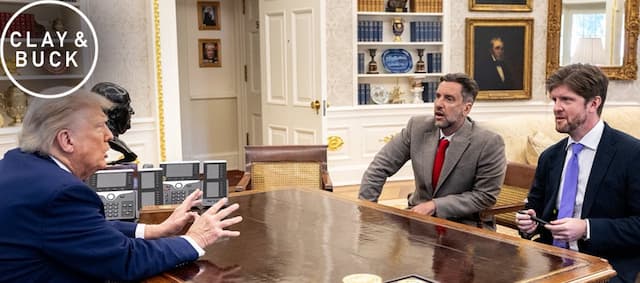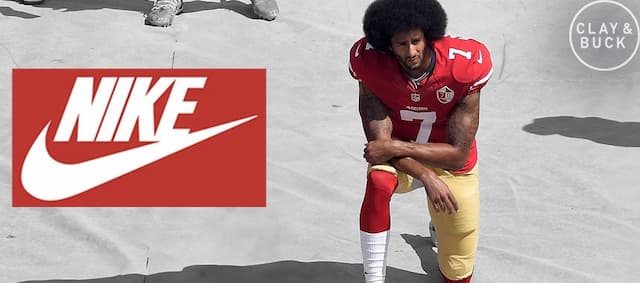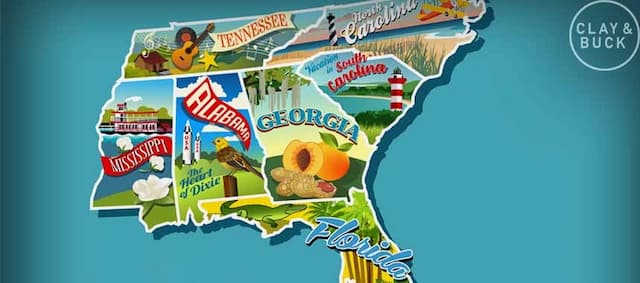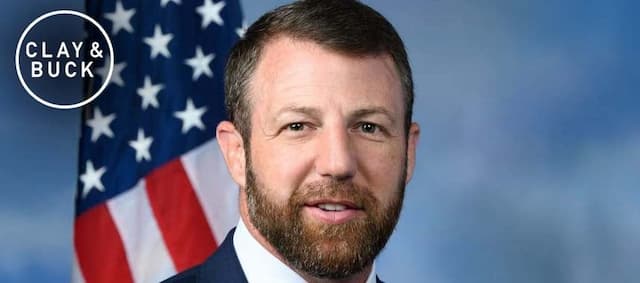Sen. Hagerty, Former Ambassador to Japan, on Shinzo Abe
BUCK: The former prime minister of Japan, Shinzo Abe, was assassinated early this morning in Japan. And we have somebody now who knew him and who understands the political situation and — in this tragic day — can explain to us a bit of what’s going on here: Senator Bill Hagerty from Tennessee, who was also formerly the U.S. ambassador to Japan. Senator Hagerty, thanks for joining us again, sir.
SEN. HAGERTY: Certainly. Certainly, it is a sad day, though, I must say. I was called right after the prime minister was shot. We were all just in shock, praying that he would survive. It’s a tragic day, not only for Prime Minister Abe, his family, for the nation of Japan, and, frankly, for the U.S.-Japan alliance.
BUCK: He may have been the best-known prime minister of Japan on the world stage since World War II, Senator Hagerty. What do you think people should know? When they’re thinking about Abe, his legacy, and what he did for that country, what should we all know?
SEN. HAGERTY: Well, I agree with you. I think he’s the most consequential leader that Japan’s had since World War II. Interestingly, he’s the first prime minister of Japan that was born after World War II. He’s also the longest serving prime minister to Japan. I was very fortunate to be the U.S. ambassador to Japan starting in 2017 when President Trump appointed me to be his representative to Japan. And I worked very closely with Prime Minister Abe. If I look at what we accomplished from that point forward, as you recall, North Korea had really ratcheted things up.

It began back in 2016 with multiple tests — and, you know, back at that point in time the Obama administration was deploying what they called “strategic patience.” I guess that means looking the other way. So, North Korea completely ramped up during that period. We were left to deal with that. In fact, President Obama warned President Trump that North Korea would be his biggest challenge coming into office, and he certainly delivered on that promise. Prime Minister Abe was an incredible ally at that point.
We put in place three consecutively stronger sets of economic sanctions on North Korea, stronger sanctions than North Korea had ever seen. That was the Maximum Pressure Campaign, and you remember how heavily it ramped up. But we pushed it, pushed it, pushed it, got that to a place where we had no more tests and really went from the position of maximum tension in the region to one where we had the first-ever leader-to-leader meeting between President Trump and Kim Jong-un.
But I could imagine that happening without the leadership and support of Prime Minister Abe because his help on the United Nations Security Council meant that we were able to impose those sanctions right away — bringing along Russia and China, I might add — and putting those sanctions in place was terribly important.
CLAY: Senator, appreciate you joining us. I know it’s tough for anyone who had known him well. He seems to have been an incredibly well-liked and respected figure, certainly in the Pacific Rim. But also now, when you look at the challenges that China is attempting… I think I saw this morning that they were continuing to basically fly planes more and more — China — into the Taiwan space.
When you look at the strategic imperatives that are in play here, what does Abe’s death mean in the larger context of United States-Pacific relations, and what do you think China’s goal is here? Buck and I talked a lot about MI5 and the FBI joint press conference and statement that they put out. What should Americans know about China’s perspectives and intent right now?
SEN. HAGERTY: Well, I think the prime minister saw this earlier than most world leaders, Clay. When you think about it, he was the one that articulated the free-and-open Indo-Pacific strategy long before others were talking about the real threat that China posed. And if you think about it, President Trump was the one that changed that entire dynamic back in 2015 when he began to talk about China in a way that I certainly appreciated but few Americans would have thought of at that point.
And if you’d asked the average American in 2015/2016, you know, “Is China our friend or is China our adversary?” they probably would have said, “T-shirts, things at Walmart that we get, China’s our friend.” In fact, President Trump changed that dynamic here in America, but Prime Minister Abe started that conversation before that, when he articulated the free and open Indo-Pacific strategy. That was the foundation of what we now call the Quad. That’s the alliance that we have between the United States, Japan, Australia, and India.
 Abe put a tremendous amount of time bringing India into the fold. I was with Abe and Prime Minister Modi of India in meetings watching the personal relationship that those two gentlemen built. I saw the relationship that Prime Minister Abe and President Trump had. It was the strongest relationship, I think, President Trump enjoyed with any world leader, and I did everything I could in my power to make certain that that relationship got stronger every time. So, as we look forward, I think we need to give a lot of credit to Prime Minister Abe in terms of his vision of the need to keep the Indo-Pacific free and open and away from and clear of the sort of influence that China is trying to impose throughout the region.
Abe put a tremendous amount of time bringing India into the fold. I was with Abe and Prime Minister Modi of India in meetings watching the personal relationship that those two gentlemen built. I saw the relationship that Prime Minister Abe and President Trump had. It was the strongest relationship, I think, President Trump enjoyed with any world leader, and I did everything I could in my power to make certain that that relationship got stronger every time. So, as we look forward, I think we need to give a lot of credit to Prime Minister Abe in terms of his vision of the need to keep the Indo-Pacific free and open and away from and clear of the sort of influence that China is trying to impose throughout the region.
I was just with Prime Minister Abe in April of this year, and he was very clear with me that the policy of “strategic patience” (chuckles) that had been deployed by the Obama administration was bankrupt. He was also questioning whether our policy of “strategic ambiguity” relating to Taiwan was one that was going to work going forward, particularly given what’s happened in Afghanistan, the fact that many of our allies now don’t trust us. The Biden administration has caused many people to wonder after Afghanistan, I think, where we stand.
I have encouraged this administration to stand strong in Asia. The Biden administration is pushing forward. They’ve actually elevated the Quad to a higher level now where it’s leader-to-leader level meetings. I’ve encouraged that. I want to support them where I can because it’s in our national interests to do this, but we have got to be strong at this point, and the Taiwan situation with respect to China is gonna be the biggest flash point we may experience. So, what happened in Afghanistan I think precipitated this massive step-up by China in the Taiwan Strait. They’re watching very carefully what happens in Ukraine right now. This is all a matter of great concern, and going forward I think we’re gonna miss Prime Minister Abe.
BUCK: We’re speaking to Senator Bill Hagerty of Tennessee, former U.S. ambassador to Japan under former President Trump. Senator Hagerty, you may have seen this. Right away there were some efforts from left-wing media outlets to take political stances or to frame this assassination in a very specific way. The one that got the most attention, I think, was NPR. They initially, from their official account, said “former Japanese prime minister Shinzo Abe, a divisive archconservative.”
And there were others, too, who seem to be taking this position that Abe was an “ultraconservative.” There was something concerning to them about what he did when he was in power. Why do Democrats have a problem…? Why did they have a problem with this man? They didn’t even let any of this… There was no mourning period, there was nothing, they immediately sought to pass some judgment. What is it we need to know about how he upset Democrats, some left-wing Democrats in this country?
SEN. HAGERTY: I think it’s reprehensible. Anytime the word “conservative” is used you’ve got the left wing and their allies in the media that just want to condemn it and jump on it. If you think about Abe, he was a great uniter. He’s the one that brought together the Indo-Pacific strategy. He’s the one that brought India into the fold. He’s the one that pulled Australia and his own nation together with the United States, strengthening the relationship there. In one of the most vital, one of the most strategic areas in the world!
Prime Minister Abe’s been a leader, and he’s done that by uniting, not by dividing, but bringing allies together. I think, you know, they’ll point to, you know, particular issues. There have been political issues between South Korea and Japan for years. That’s a difficulty that has persisted through leader after leader in Japan, and I have put a lot of time and effort into trying to get stronger economic ties between those two nations — that’s South Korea, Japan, and the United States. Similarly, I think we have an opportunity with stronger military ties.
 We get along very well with militaries of both nations. The political history there is challenging, and I think it’s regrettable upon the death of strong world leader like this that we’ve got these news outlets that want to jump on the politics immediately, trying to take sides, and not stand back and recognize the incredible impact. As I said, this leader, Prime Minister Abe, will be viewed as, I think, the most consequential leader in post-World War II history for Japan, and the impact of it’s gonna be felt for generations going forward.
We get along very well with militaries of both nations. The political history there is challenging, and I think it’s regrettable upon the death of strong world leader like this that we’ve got these news outlets that want to jump on the politics immediately, trying to take sides, and not stand back and recognize the incredible impact. As I said, this leader, Prime Minister Abe, will be viewed as, I think, the most consequential leader in post-World War II history for Japan, and the impact of it’s gonna be felt for generations going forward.
CLAY: Senator Hagerty, we appreciate the time on short notice, reacting to the death of Prime Minister Abe, and we hope you have a fantastic weekend. Thanks for the time.
SEN. HAGERTY: Great. Thank you so much. All the best.
CLAY: That is Senator Bill Hagerty from Tennessee.





